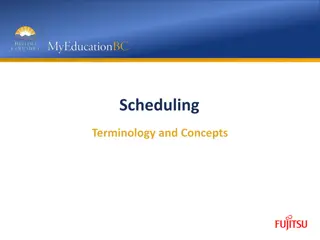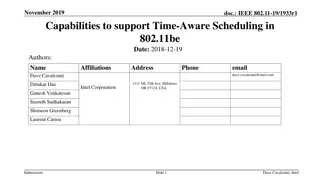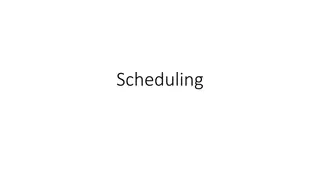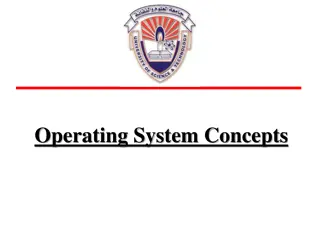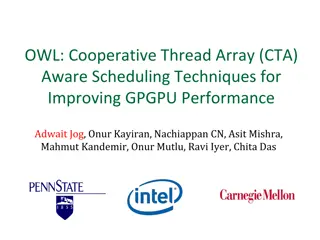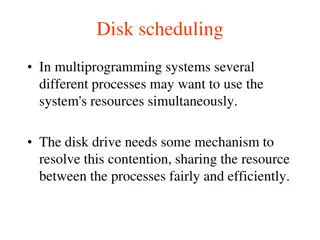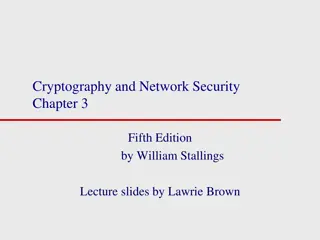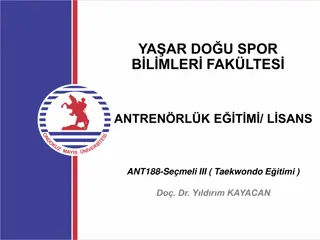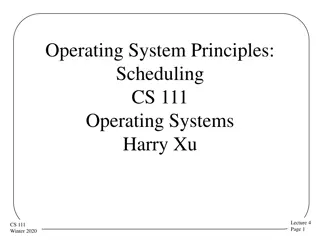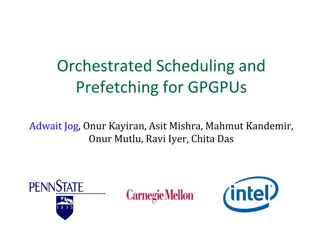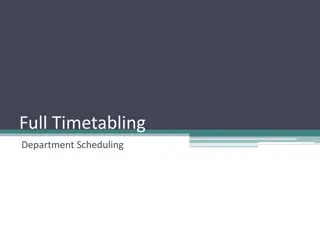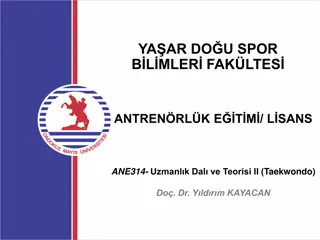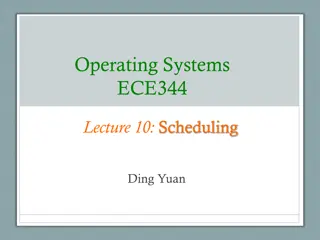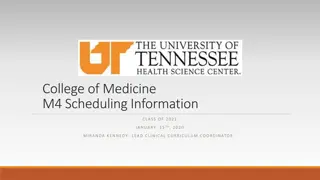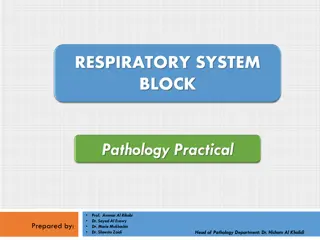Enhancing Student Success through Block Scheduling at KSU
National Institute for Student Success (NISS) diagnostic analysis at KSU shows the importance of block scheduling in increasing graduation rates and student engagement. Actions to increase registration for full-time schedules and improve student success are underway. The goals of KSU's block scheduling include minimizing credit loss and enhancing student engagement. First-time freshmen are involved in the program in the fall semester. The building process involves academic literature benchmarking and feedback from colleges.
Download Presentation

Please find below an Image/Link to download the presentation.
The content on the website is provided AS IS for your information and personal use only. It may not be sold, licensed, or shared on other websites without obtaining consent from the author.If you encounter any issues during the download, it is possible that the publisher has removed the file from their server.
You are allowed to download the files provided on this website for personal or commercial use, subject to the condition that they are used lawfully. All files are the property of their respective owners.
The content on the website is provided AS IS for your information and personal use only. It may not be sold, licensed, or shared on other websites without obtaining consent from the author.
E N D
Presentation Transcript
Why Block Scheduling v1.0 F22 National Institute for Student Success (NISS) diagnostic analysis The KSU Graduation Rate 4 yr. rate ~ 22% 6 yr. rate ~ 48% Full-time Progression Enrollment: ~30% of KSU students enroll in 15+ c/hrs. It is an important to: o The USG o Rankings o More qualified &/or discerning applicants in a competitive market o Student debt o KSU faculty, staff, and administration
S22 Actions to Increase RPG NISS Oversight taskforce Enrollment Services, Student Success, Faculty Senate, Faculty Gen Ed Director Initial Steps In-Progress Areas for Improvement Student Engagement Data Management Restructuring Career Planning Stepping Blocks Mid-term Grades Faculty development Course Scheduling (process, software, blocks) Data Driven Decisions Success in Critical Courses First Year Experience Advising Coordination
The Goals of KSU Block Scheduling v1.0 RPG o Increase the number of students registered for a full-time (15+ c/hrs.) schedule with the appropriate selection of courses o Minimize the loss of credit if/when students changes majors o Student Engagement to enhance social integration, facilitate the formation of study groups, and foster community building Registration Increase pre-registration awareness/understanding of the process and its importance Modified Advisor involvement & guidance Streamline for easier enrollment
Which Students are Involved in v1.0? First-Time-Freshmen (FtF) in the Fall 24 semester o~ 13% of KSU students o~ <20% of course sections Block scheduling will ONLY be used in the first Fall semester for FtF
Building the v1.0 Blocks The Blocks Academic Literature Benchmarking: NISS, GSU, GPC, CSUF Solicited College recommendations Programs of Study Enrollment Data Analysis & projections USG Momentum Project Block scheduling Consultants Feedback from Colleges (3 iterations) Major/Interest Block o 9-10 c/hrs. College Specific Areas B, C, D, E English/Math Block o 6-7 c/hrs. Delivery Format Days & Times Mode (F2F, Online, Hybrid, Mixed) Campus
After the Fall 24 Blocks are Built Colleges build the remaining ~80% of the course schedule and submits: oTime & Location preferences oFaculty assignments Registrar runs The Optimizer Registrar receives/evaluates requests for schedule modifications
The Registration Process Pre-Orientation o Info presented via Recruiters, 300+ Tours, and 8 Open Houses o New Student Program videos o Advisor communications & meetings At Orientation to Add/Drop Meet with advisors to discuss best path forward (adjust for special circumstances) Advance Placement credit Dual Enrollment credit Part-time students Athletics Change of major Undecided Other life circumstances
v1.0 & beyond: A Continuous Improvement Process During the Spring 2024 and Summer 2024 semesters Continue to monitor the admissions, acceptance and orientation registration data and collaborate with colleges to adjust as needed and possible Pilot registration process in Spring 2024 with special groups Fall 2024 Semester Analyze data Solicit colleges and other stakeholders for feedback Continue to work with NISS, consultants and peers for best practices Build v2.0 draft




